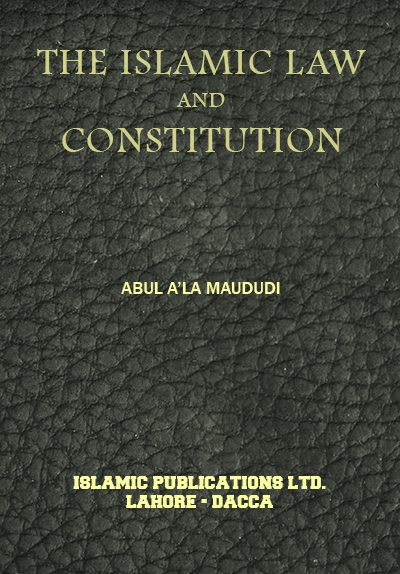



This is the second part of Zafar Bangash’s article on “change”; the first part was published in the October 2016 issue of Crescent International, concluding with outlining some of the qualities of muttaqi leadership.
3As Muslims worldwide commemorate the late Imam’s 27th anniversary, we reflect on some of his greatest achievements, among them his ijtihad on Islamic government.
The noble concept of the Khilafah (the Islamic State) has been besmirched at the hands of terrorists and head choppers. This is part of a plan to undermine the aspirations of Muslims for legitimacy, justice and peace.
1Muslim political thought seems to have drifted from the teachings of the Qur’an, and the Sunnah and Sirah of the noble Messenger of Allah (s). In Part I of this essay, Zafar Bangash, Director of the Institute of Contemporary Isla-mic Thought, places it back in the Sirah to enable the Islamic movement to transform wayward Muslim societies.
This month, Muslims all over the world should be celebrating the 29th anniversary of the Islamic Revolution in Iran, alongside other informed and conscientious people concerned for the oppressed and downtrodden of the world. But the harsh reality is that only a tiny fraction of these people will be commemorating the rise of Imam Khomeini and the success of the Iranian people in toppling the “king of kings”, the last Pahlavi shah of Iran. Nearly three decades ago, the Islamic Revolution that took place in Iran resonated among virtually all Muslims and many other of the world’s oppressed peoples.
Al-mu'min mir'atu akhihi (“a committed Muslim is the mirror of his brother”). In other words, we Muslims should be building on our perceptions of each other. One should be able to identify one's own characteristics as a Muslim through the character andbehavior of another Muslim.
There are less than three years left for the US's neo-conservative leaders – the current set of pro-Israeli decision-makers inWashington – to make their mark on history. They have had five years in power and the only rallying cry they have produced was 9/11.
As the Islamic New Year approaches, there is every sign that it could be as significant as the year of the Ahzab (the coalition of the willing mushriks). This time, instead of Islamic Madinah being besieged by Arabian military forces, it is Islamic Iran surrounded by American military forces.
After months of Iraq dominating the headlines, the focus seems to have shifted to Islamic Iran. It began with American accusations that Iran was interfering in Iraq’s affairs, because of the close links between the Islamic state and some Iraqi Islamic leaders and movements...
This paper was presented by Zafar Bangash at the International Conference on 'The Seerah: A Power Perspective' convened by the Institute of Contemporary Islamic Thought (ICIT) and Crescent International in Colombo, Sri Lanka, on June 16-18, 2000. Zafar Bangash is Director of the ICIT. In this paper, he outlines his understanding of the nature of leadership in Islam, and practical aspects of a leader.
This paper was written by Dr Kalim Siddiqui just before his untimely death in April 1996. It was published in 1998 by the Institute of Contemporary Islamic Thought (ICIT), Toronto and London, inviting Muslim scholars, academics and activists to work on the Seerah of the noble Messenger (saws) from this new, analytical perspective rather the mere descriptive approach hitherto taken with Seerah studies.
The struggle to establish an independent Islamic State in Mindanao, southern Philippines, is far from over even if peace talks are underway with the Moro Islamic Liberation Front (MILF).
[This paper was written as the introduction to Issues in the Islamic Movement 1980-81, London and Toronto: The Open Press, 1982. This was the first volume of the ‘Issues books’, the anthologies of articles from the Crescent International and Muslimedia which were edited by Kalim Siddiqui and published annually from 1982-1988. It was reprinted in Zafar Bangash (ed), In Pursuit of the Power of Islam: Major Writings of Kalim Siddiqui, London and Toronto: The Open Press, 1996. This printing is based on the 1996 publication.]
A book like the present one, which has not been written in the common textbook style, may not cater to all the academic needs of a student or Islamic Law and Constitution, who wants to study the subject in all its multifarious details, but I do hope, it will prove of immense help to all those persons who want to study the nature of the Islamic State, its theory, form and underlying principles, and who wish to understand how the Islamic Law can be implemented in a modern state. Today there are many countries whose Muslim population is, after attaining independence, naturally eager to base its polity on those principles and traditions of Islam which are a demand of its faith and conscience.The people want that the Islamic Law should be introduced in their respective countries so that they may follow a law which they owe their honest and sincere allegiance.
1
